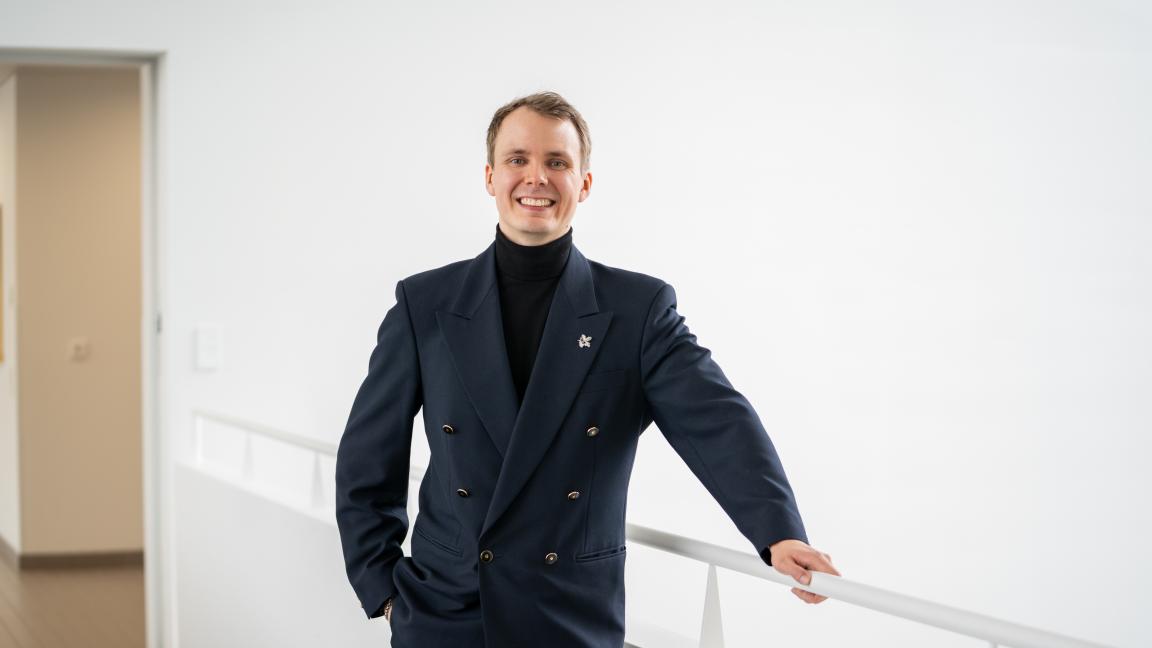Crisis management is not just the state's responsibility – the roles of citizens and the media require clearer definition
The COVID-19 pandemic has prompted global discussion about national crisis management strategies. In his dissertation, Ville-Pekka Niskanen introduces new perspectives to this discourse by examining how the COVID crisis was managed in Finland, emphasising the synergy between the state and the broader society.
According to Niskanen, the importance of functional societal structures, democratic institutions, and public trust are especially highlighted in crisis management.
– In Finland, trust in societal structures and institutions is high, and the pandemic crisis was managed relatively well here. Our society is ready to adapt in times of crisis and to accept new decisions in pursuit of the common good. This kind of culture of cooperation and strong trust should be protected in the future as well, says Niskanen, who will defend his dissertation at the University of Vaasa on 6 June 2025.
In his doctoral dissertation in the field of management, Niskanen introduces a new concept developed by him: emergent societal crisis management. It describes crisis management as a broader societal process than before.
– Although the participation of the whole society in crisis management is essential, attention still often centers on state responsibilities. This new concept captures the idea that citizens, businesses, and the media – among others – also have their own roles in crises. It underscores that successful crisis management requires the contribution of all societal actors. The nation’s cultural and political deep structures are also important.
Comprehensive security is worth investing in
In his research, Niskanen also proposes designing a national research program for Finland's comprehensive security through broad collaboration. For instance, the central government, municipalities, wellbeing services counties, citizens, and businesses should be involved in the design process.
– The program would provide clear guidelines for studying comprehensive security. In particular, it should include research on how cooperation is carried out during crises as well as how the roles of the state and the rest of society are coordinated. At the same time, the program should be closely linked to international discussions and take into account the solutions and research practices developed for comprehensive security in other countries, Niskanen emphasises.
Niskanen conducted his dissertation using a multi-method approach – he utilised documentary sources, previous literature and research, media data, and Citizens’ Pulse surveys.
Doctoral dissertation
Niskanen, Ville-Pekka (2025) Valtioneuvosto, kansalaisluottamus ja media koronakriisin hallinnassa. Acta Wasaensia 556. Doctoral dissertation. University of Vaasa.
Public defence
The public examination of MA Ville-Pekka Niskanen’s doctoral dissertation ”Valtioneuvosto, kansalaisluottamus ja media koronakriisin hallinnassa” will be held on Friday 6 June 2025 at 12 at the University of Vaasa, auditorium Nissi.
It is possible to participate in the defence also online: https://uwasa.zoom.us/j/62472575497?pwd=0tefDVWAbhSWaX1xHuPBrcMNSUH1JY.1
Password: 606708
Professor Jan-Erik Johanson (Tampere University) will act as opponent and Professor Harri Jalonen as custos.
The defence will be held in Finnish.
Further information
Ville-Pekka Niskanen, tel. +358 29 449 8623, ville-pekka.niskanen@uwasa.fi
Ville-Pekka Niskanen was born in 1994 in Kouvola. He earned his Master’s degree in 2021 from the University of Helsinki’s Environmental Change and Global Sustainability programme. Niskanen is currently working as a project researcher at the University of Vaasa.
